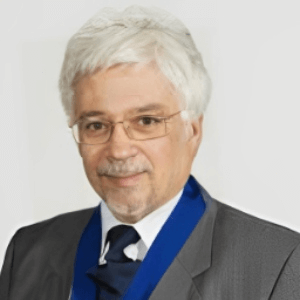Title : Predictors spontaneous neurological recovery and factors that affect the outcomes of management of patients with traumatic spinal cord Injuries
Abstract:
The incidence of Traumatic spinal cord injuries (TSCI) is small and ranges between 10-50/million population/year. Prior to the second WW the great majority of patients died within two years of injury. Since the 2nd WW, due to the efforts of the pioneers who dedicated their professional lives to the field of TSCI, most well managed patients have been able to lead enjoyable, dignified, fulfilling, productive and often competitive lives and many with depending on the presence of short and long tract sensory sparing exhibit significant degrees of neurological and functional recovery locally or below the level of their injury. To achieve this however requires in depth understanding of the systemic effects of cord damage on the neurological and functional outcomes and expert simultaneous management of the injury together with the potentially devastating and life-changing medical, physical, psychological, social, financial, vocational, environmental & matrimonial consequences that affect the patient, family members. Knowledge experience and skills in the adequate management of patients with TSCI necessitate training in dedicated Centres that treat all aspects of TSCIs in large numbers and under one roof.
TSCIs cause a multi-system physiological impairment and malfunction. This impairment is dynamic and affects the functioning of the various system of the body during the transitional stage between spinal areflexia and return of autonomic and spinal reflexes. During this transition the management of the various systems of the body requires modulation. Following the return of reflex activity the function of the various systems affected remains at risk of being unstable and erratic. This is due to the effects of the various inter-system autonomic and spinal reflex activity caused by the loss of inhibitory and coordinating influence of the higher centres. The combination of an unstable neuro-physiological impairment and sensory impairment/loss can in inexperienced hands result in the development a wide range of potential complications and increase in disability. Some complications can further damage the Injured and Physiologically Unstable Spinal Cord, cause neurological deterioration, delays or absence of recovery imposing further challenges to patients and clinicians. Fortunately with adequate Active Physio Conservative Management (APCM) of the injury and its medical effects almost all complications following TSCI can be prevented or diagnosed early and treated before further damage develops.
This necessitates a period of treatment in recumbence until the full return of the autonomic and spinal reflexes. This period ranges between four to eight weeks. Neurological Recovery can be predicted early in the presence of spared sensory tracts and depending on the extent of the sparing when complications are prevented or diagnosed and treated early . This recovery has been repeatedly documented by various groups to occur irrespective of the radiological presentation on X-rays, CT & MRI since 1969. Unfortunately it has been rarely referred to in the literature in the last three decades.
The last three decades have witnessed increasing claims of benefits of a mechanical interventional approach focusing on the injured spine often at the expense of the adequacy of management of the medical and non-medical effects of the cord injury. Claims that early interventions expedite the mobilisation, rehabilitation and discharge of patients; improve neurological outcomes or achieve both are currently influencing practice in both well-resourced and under-resourced countries. The risk of further mechanical and non-mechanical damage to neural during or after an intervention and during some of the related practices can be potentially detrimental to neurological and functional outcomes.
I will in this presentation discuss the extent of anticipated neurological recovery, the factors that influence its achievement, the role of clinical and radiological findings, and the role of surgery on the short, medium and long term




